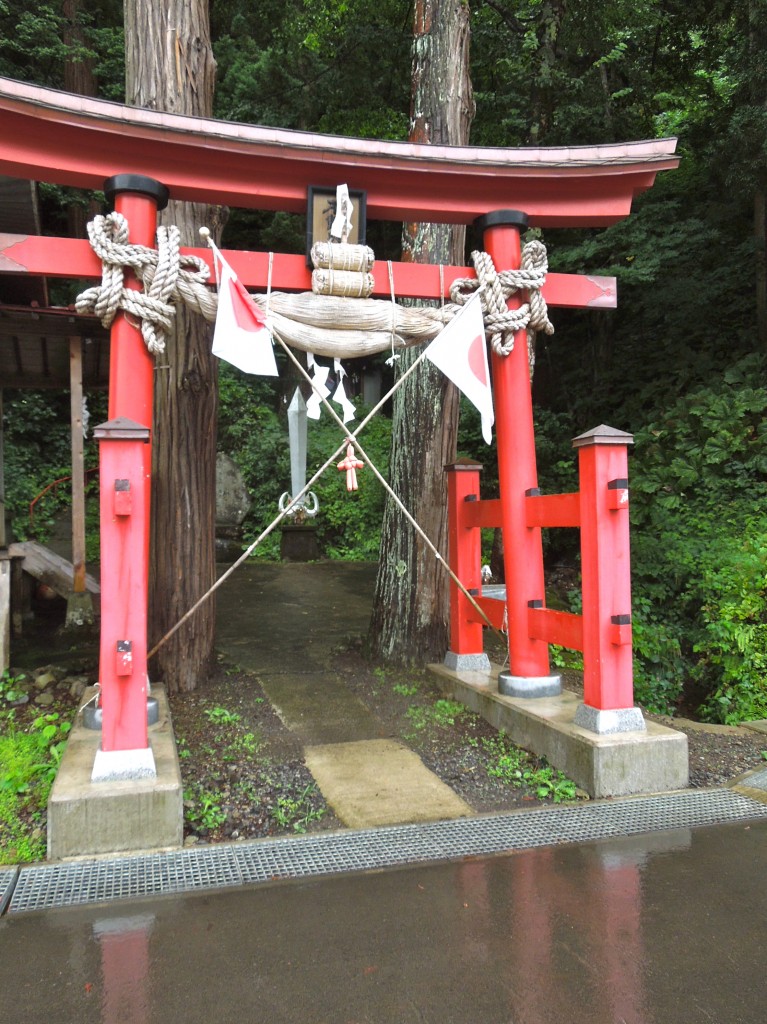
Shrines today are decked out with flags for the supposed establishment of the nation by Emperor Jimmu
Today being February 11 it’s a public holiday known as Foundation Day. Flags are flying, and people are out enjoying themselves on a crisp sunny day in Kyoto. At various shrines around the country there are special events to mark the occasion – martial arts, displays of bonsai, even some football (or kemari as the Heian-era kick-ball is known).
The national holiday was first held in 1967 as a day to reflect on the establishment of the nation and to nurture a love for the country. It’s basically a resurrected piece of State Shinto celebrating the Yamato imperial lineage that is said to have presided over Japan from the seventh century onwards. From 1872 to 1948, February 11 was known as Kigen-setsu, a holiday commemorating the ascension of Emperor Jimmu to the throne in 660 BC according to the Nihon Shoki (720).
Emperor Jimmu is a mythical figure thought to have been a later invention, and the dating of 660 BC is acknowledged as fanciful. Like King Arthur, he may have been a composite figure around whom legend accrued and to whom heroic tales were attached. We therefore have the fascinating situation in which ‘modern democratic’ Japan celebrates the mythical founding of the country by an imperial lineage which remains the country’s symbolic representative.
None of this would matter very much if it did not contain the nucleus of a resurgent nationalism based on retrogressive nostalgia for State Shinto. It’s why at certain shrines today rightwing extremists will be gathering to display their patriotic fervour. It’s an occasion when particularism gains the upper hand over universalism.
For its part Green Shinto will be looking forward to the Vernal Equinox (Shunbun no hi), a national holiday established in the heady postwar days of 1948 as a day for the admiration of nature and living things. Now there’s something worth celebrating!
****************************************
An article in Japan Today on Feb 12 points out that 8 out of 10 Japanese have no awareness of the significance of the public holiday on Feb 11. This was immediately seized on by the rightwing who declared it a source of national shame and a need to install a correct understanding of history. ‘“In an ever-more globalized society, it will be necessary to provide well rounded education in national history, including a nation’s founding, at the compulsory education level,” said Hirofumi Munehisa, speaker of the Japan Jaycee Assembly on National History. Mythology as history apparently lives on in the minds of some.

Rightwing extremists will be taking their trucks to gather at certain shrines across the country, including Yasukuni and Kashihara Jingu, supposedly built on the site of the palace of Emperor Jimmu

Leave a Reply